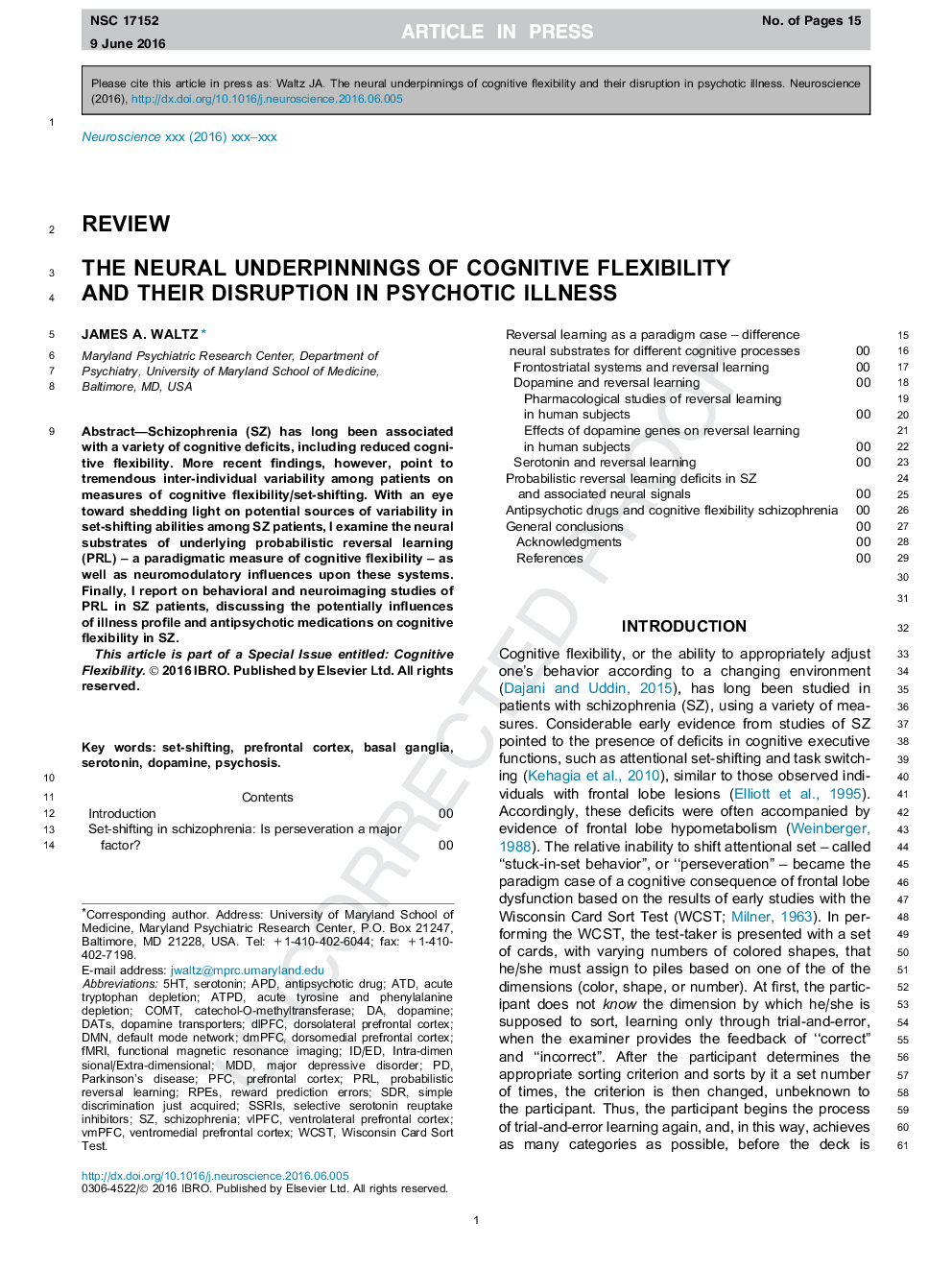| Article ID | Journal | Published Year | Pages | File Type |
|---|---|---|---|---|
| 5738004 | Neuroscience | 2017 | 15 Pages |
Abstract
Schizophrenia (SZ) has long been associated with a variety of cognitive deficits, including reduced cognitive flexibility. More recent findings, however, point to tremendous inter-individual variability among patients on measures of cognitive flexibility/set-shifting. With an eye toward shedding light on potential sources of variability in set-shifting abilities among SZ patients, I examine the neural substrates of underlying probabilistic reversal learning (PRL) - a paradigmatic measure of cognitive flexibility - as well as neuromodulatory influences upon these systems. Finally, I report on behavioral and neuroimaging studies of PRL in SZ patients, discussing the potentially influences of illness profile and antipsychotic medications on cognitive flexibility in SZ.
Keywords
SSRIsRPEsReward prediction errorsatpDAPDDATSWCSTvmPFCPRLVLPFCDMPFCCOMTDLPFC5HTDMNATDPFCSDRCatechol-O-methyltransferaseMDDMajor depressive disorderSchizophreniaParkinson’s diseaseWisconsin card sort testfMRIfunctional magnetic resonance imagingSet-shiftingDopamine transportersAntipsychotic drugDopaminePsychosisSerotonindefault mode networkbasal gangliaprefrontal cortexventrolateral prefrontal cortexdorsomedial prefrontal cortexdorsolateral prefrontal cortexselective serotonin reuptake inhibitorsAcute tryptophan depletionventromedial prefrontal cortexprobabilistic reversal learning
Related Topics
Life Sciences
Neuroscience
Neuroscience (General)
Authors
James A. Waltz,
